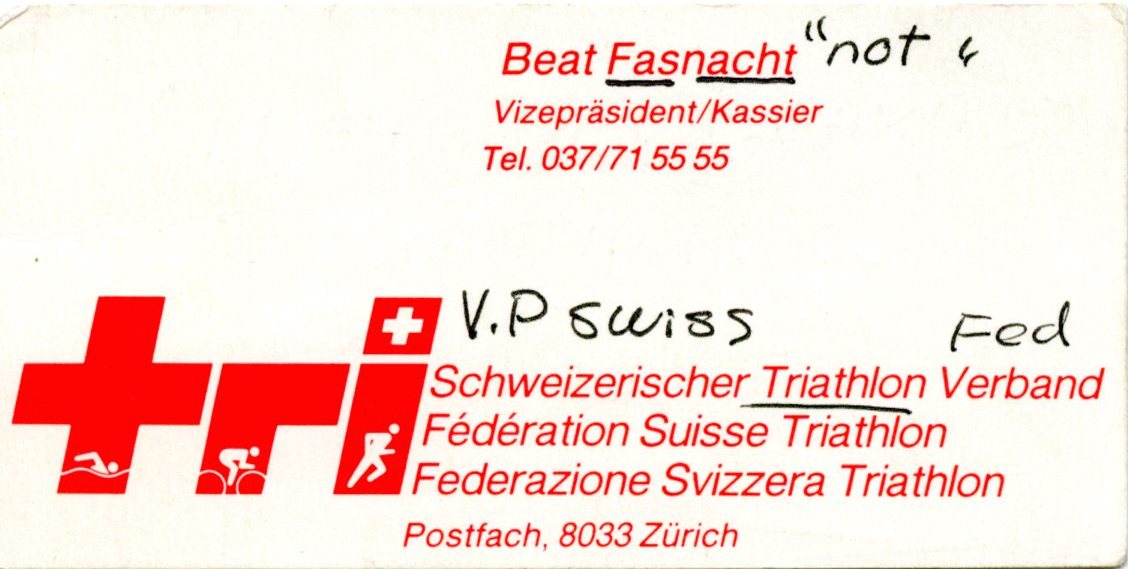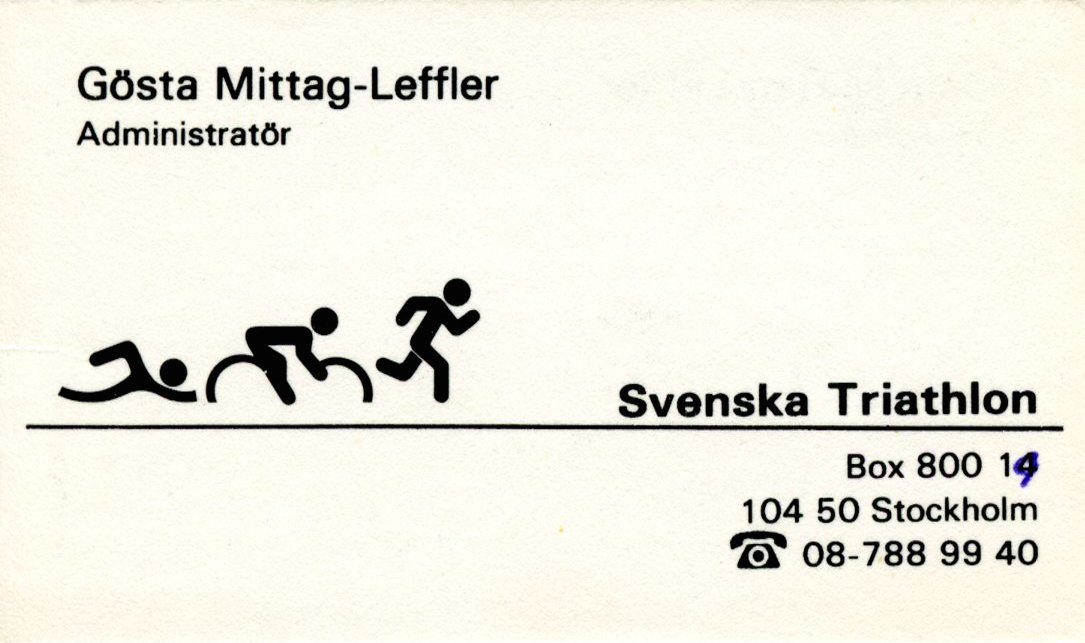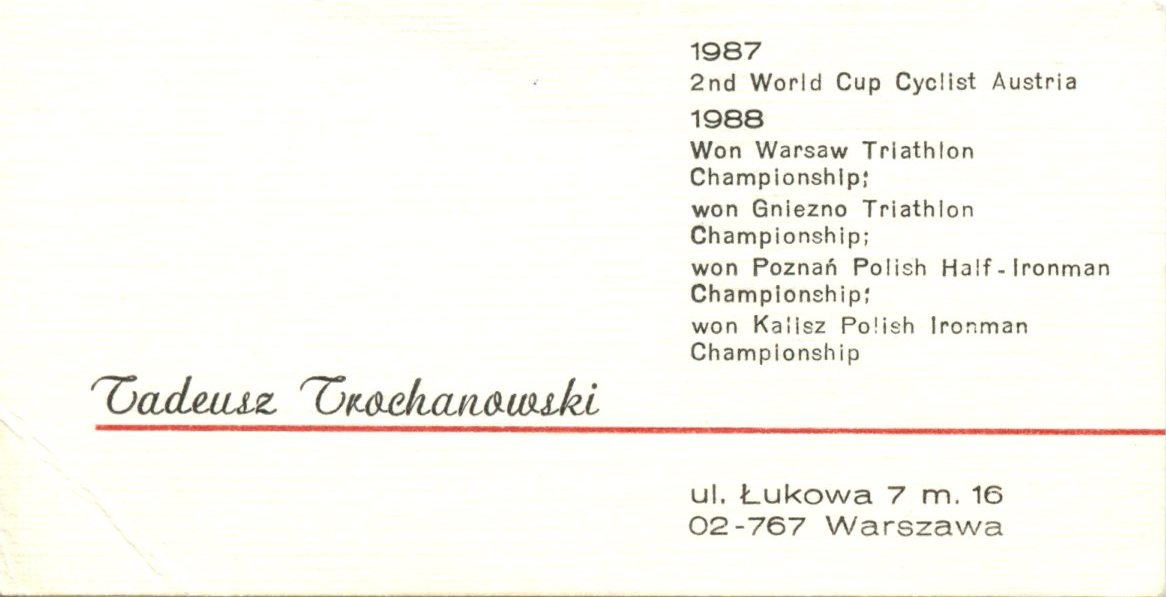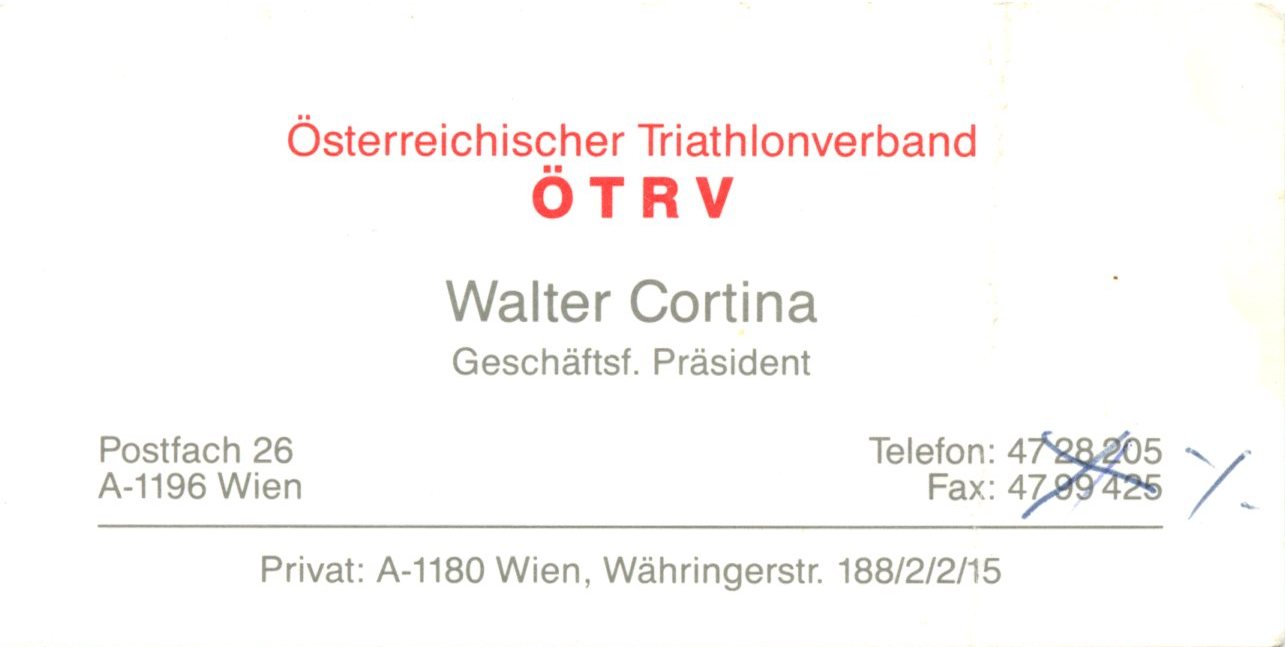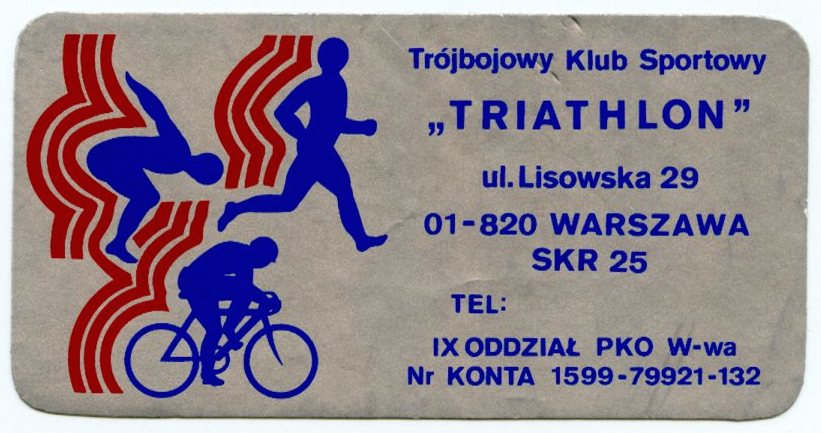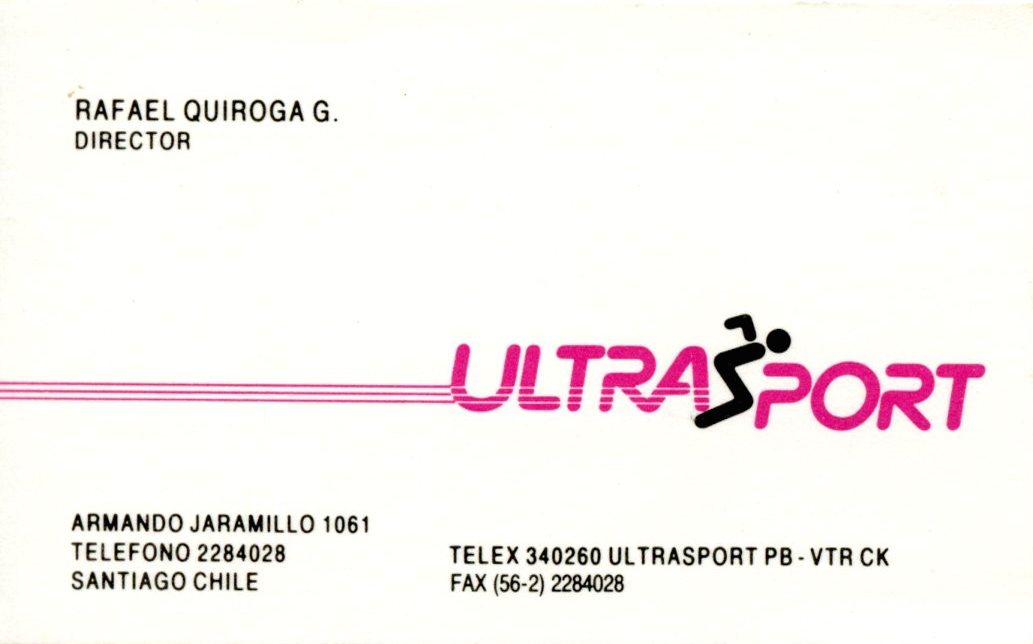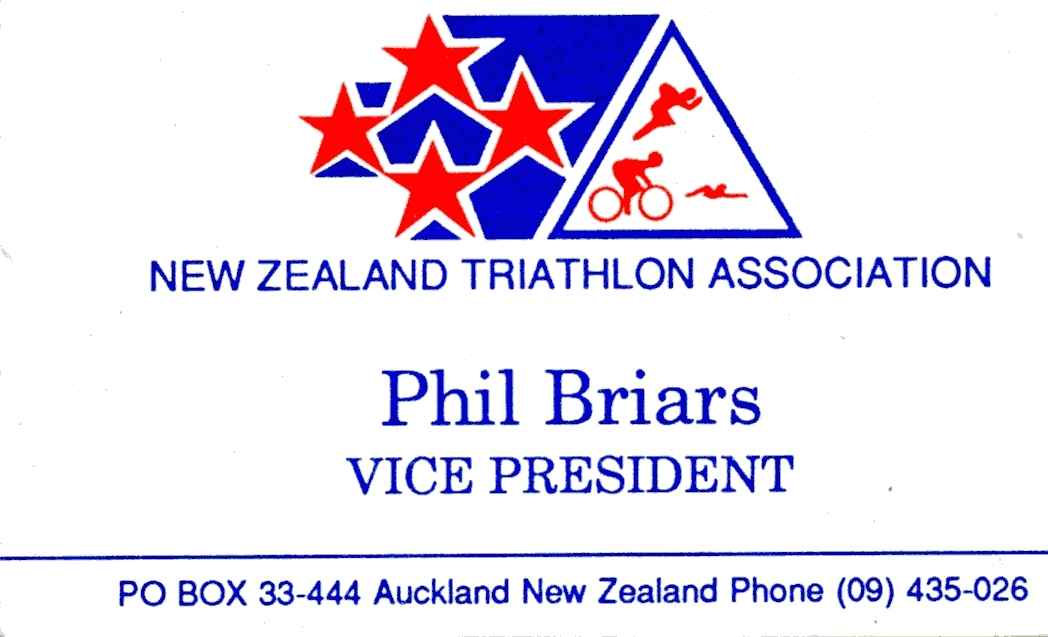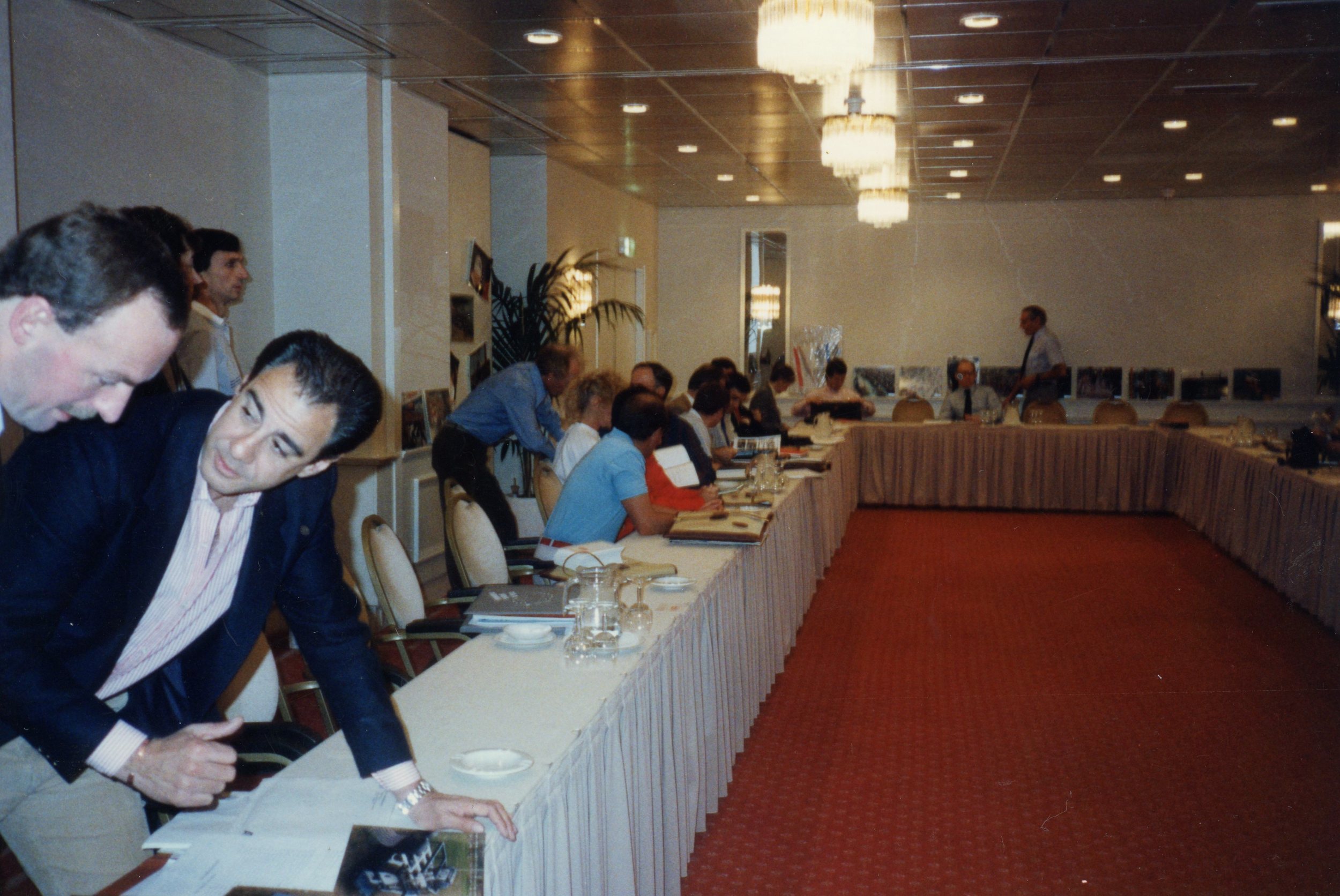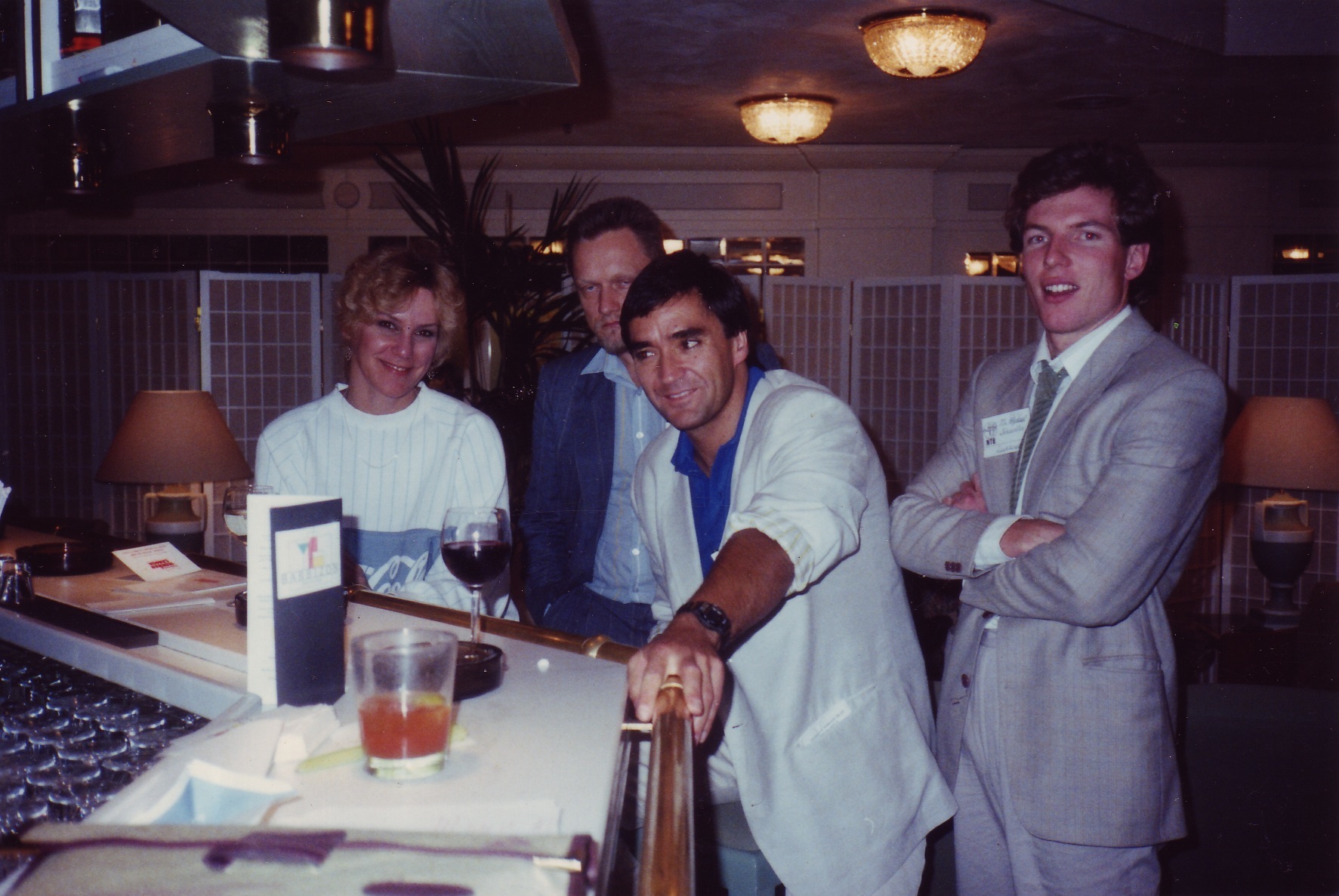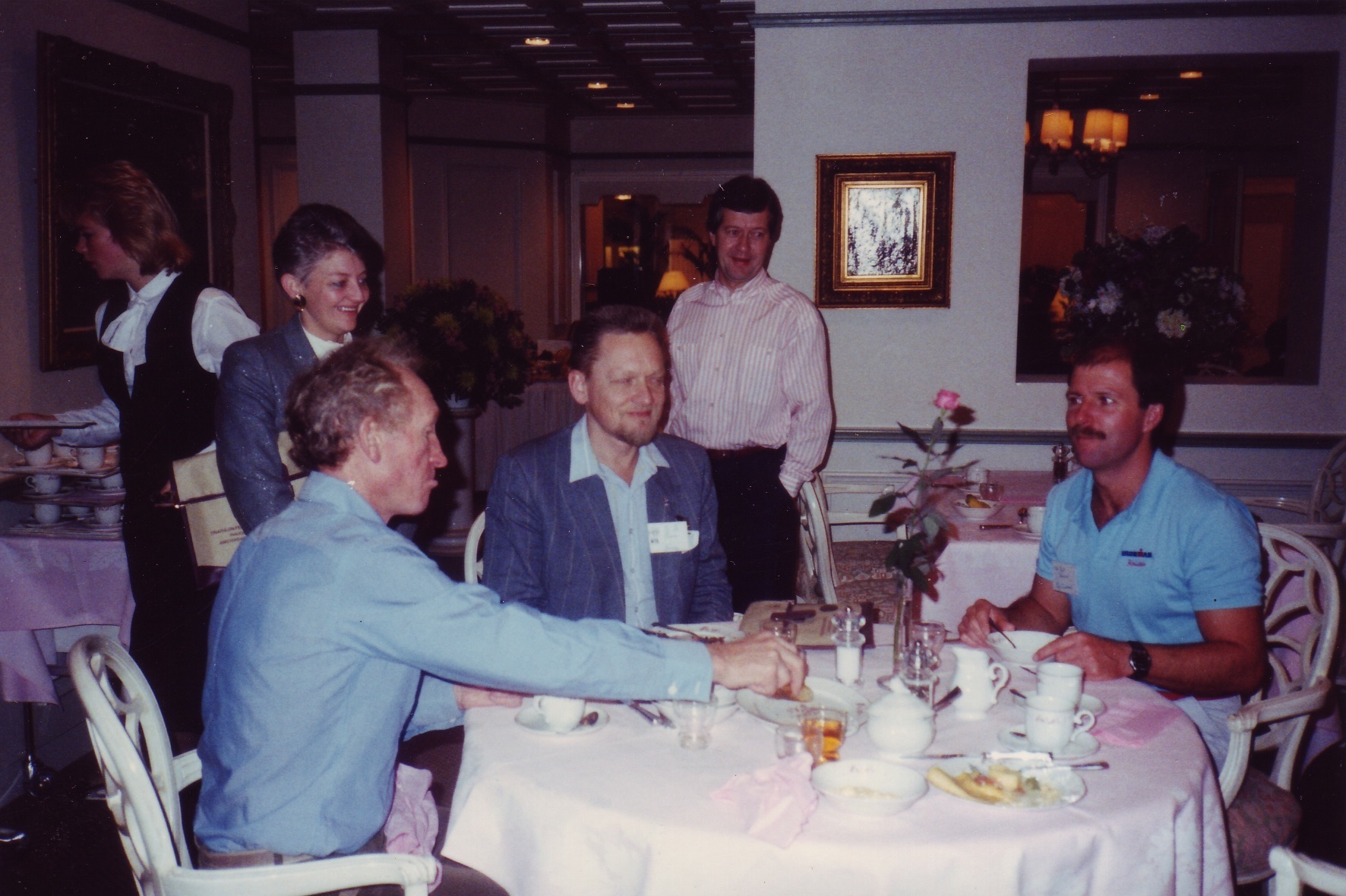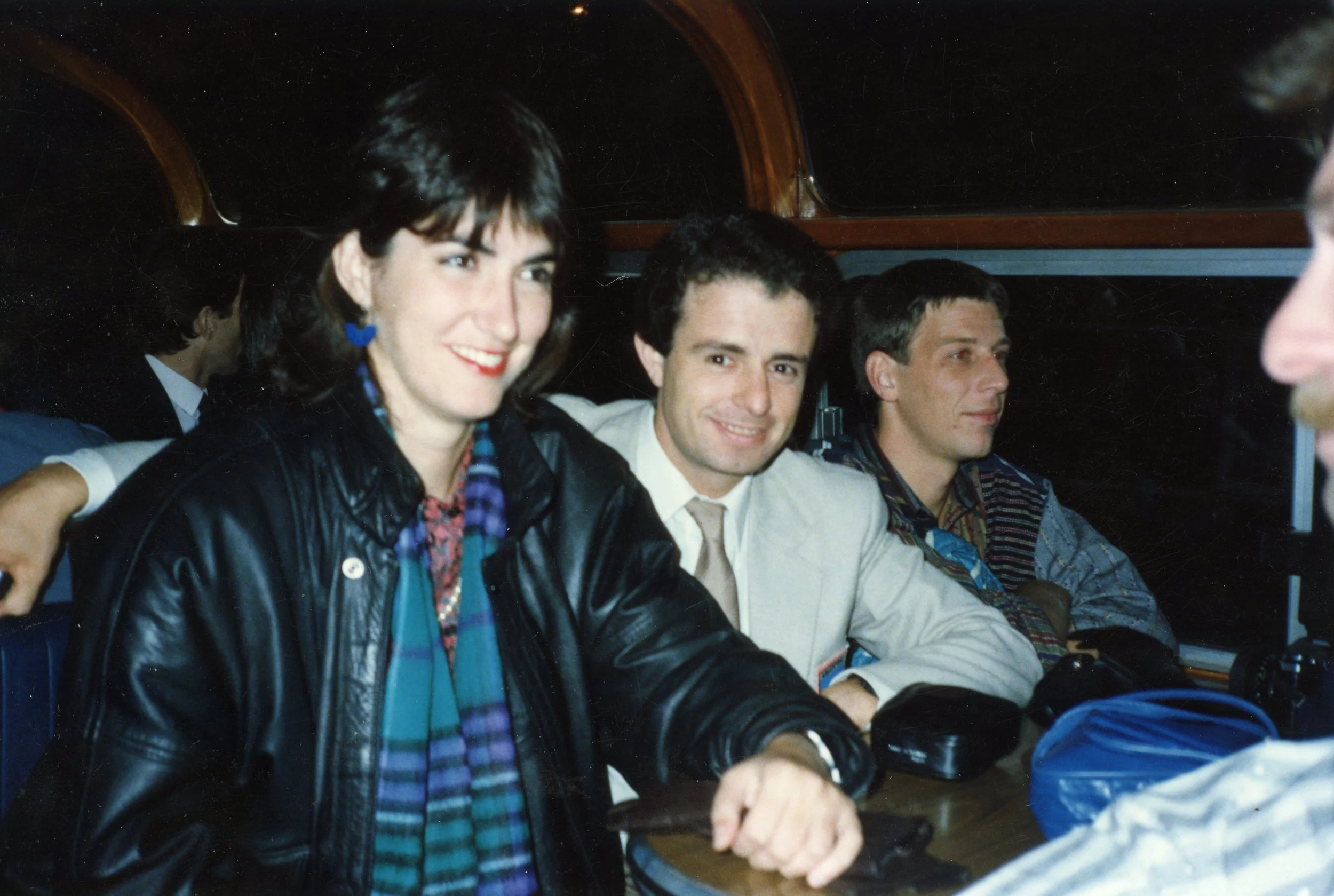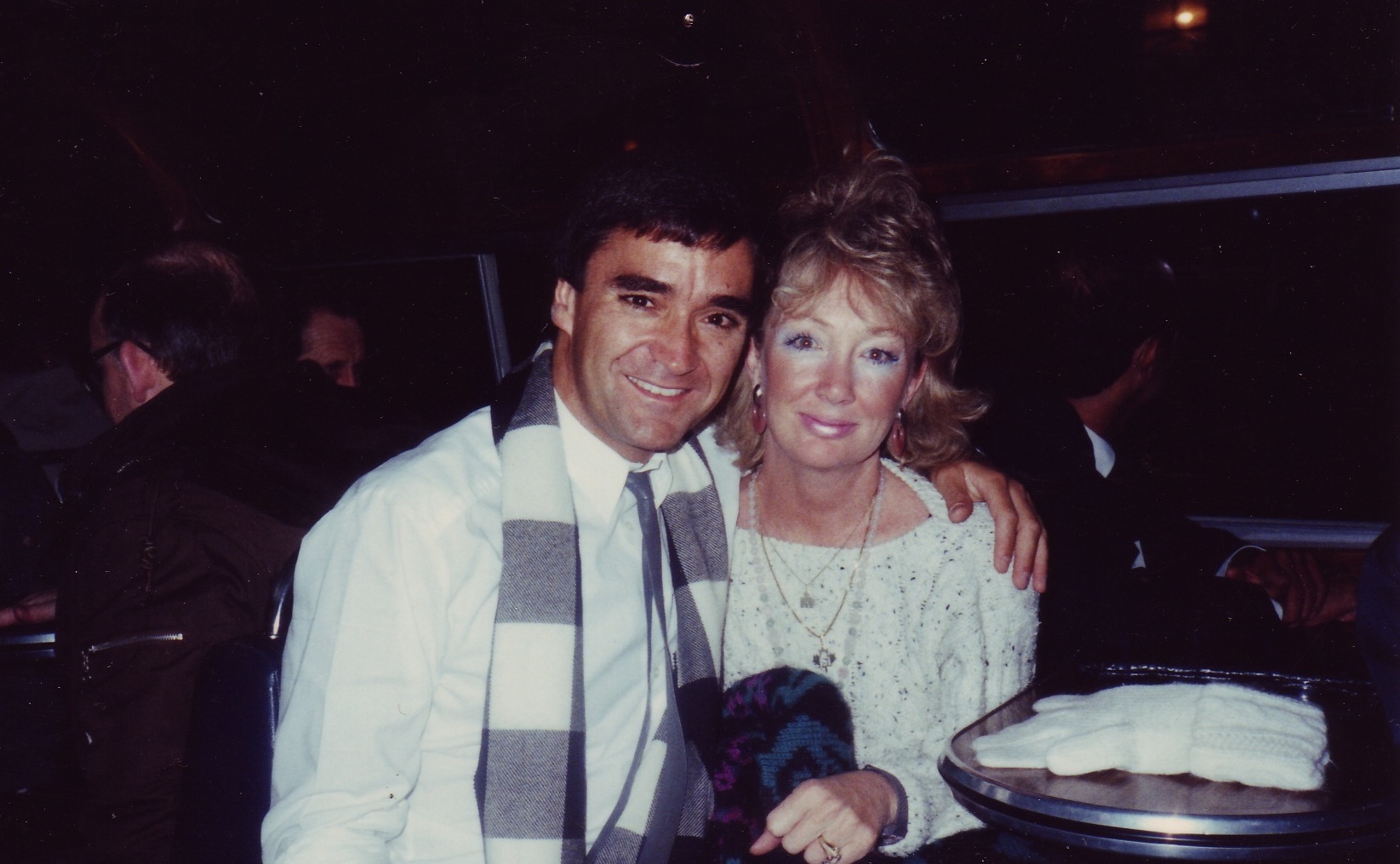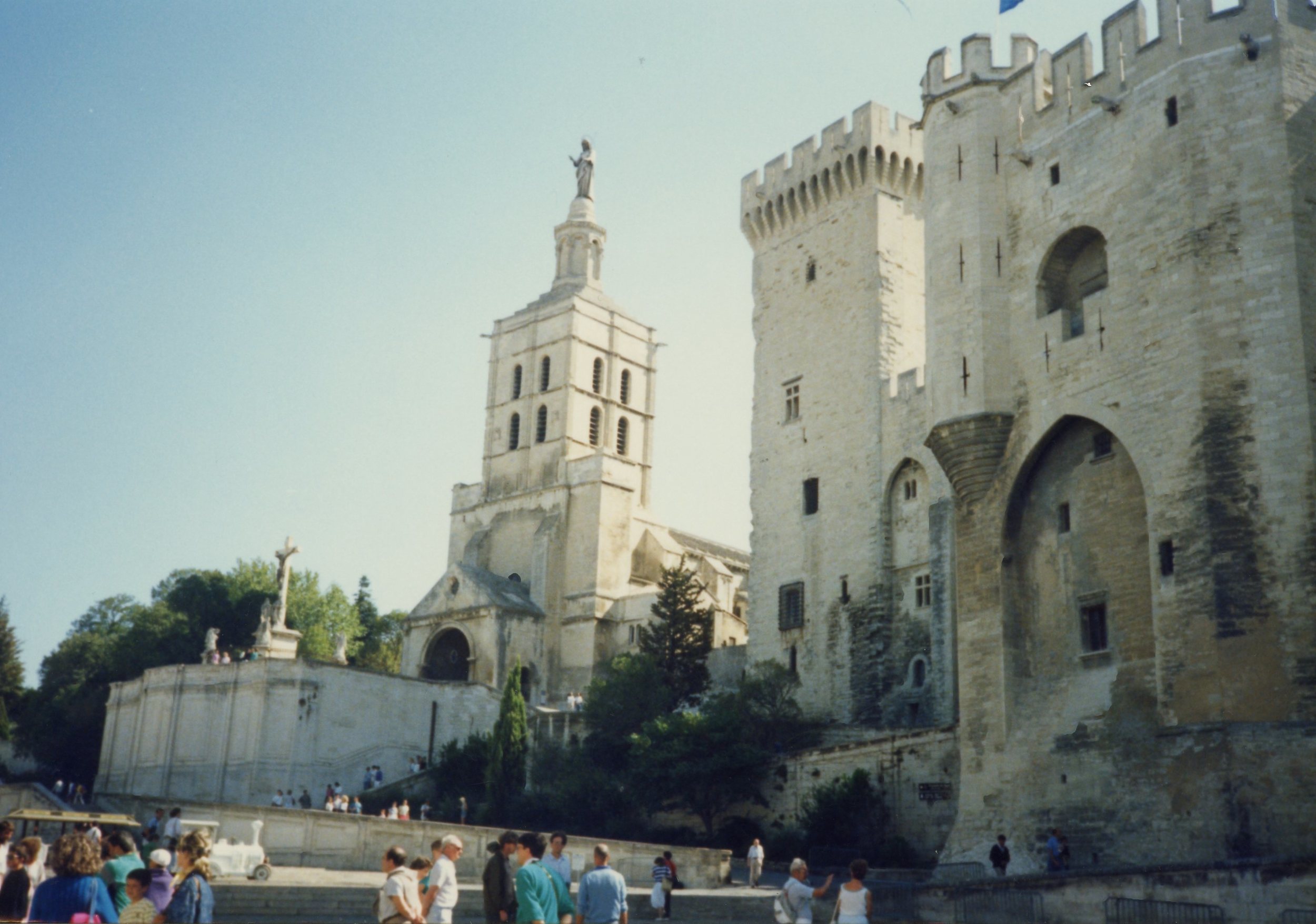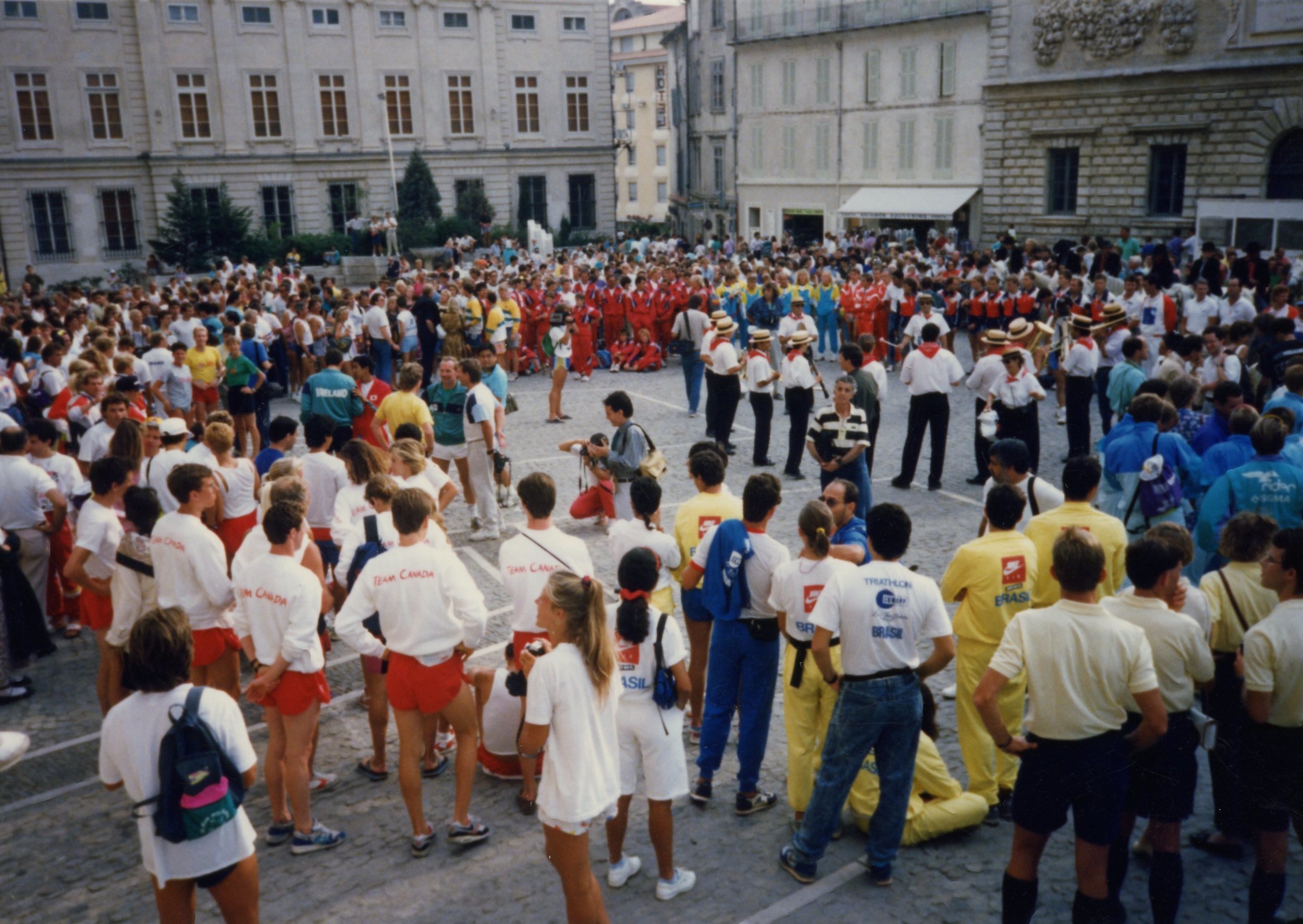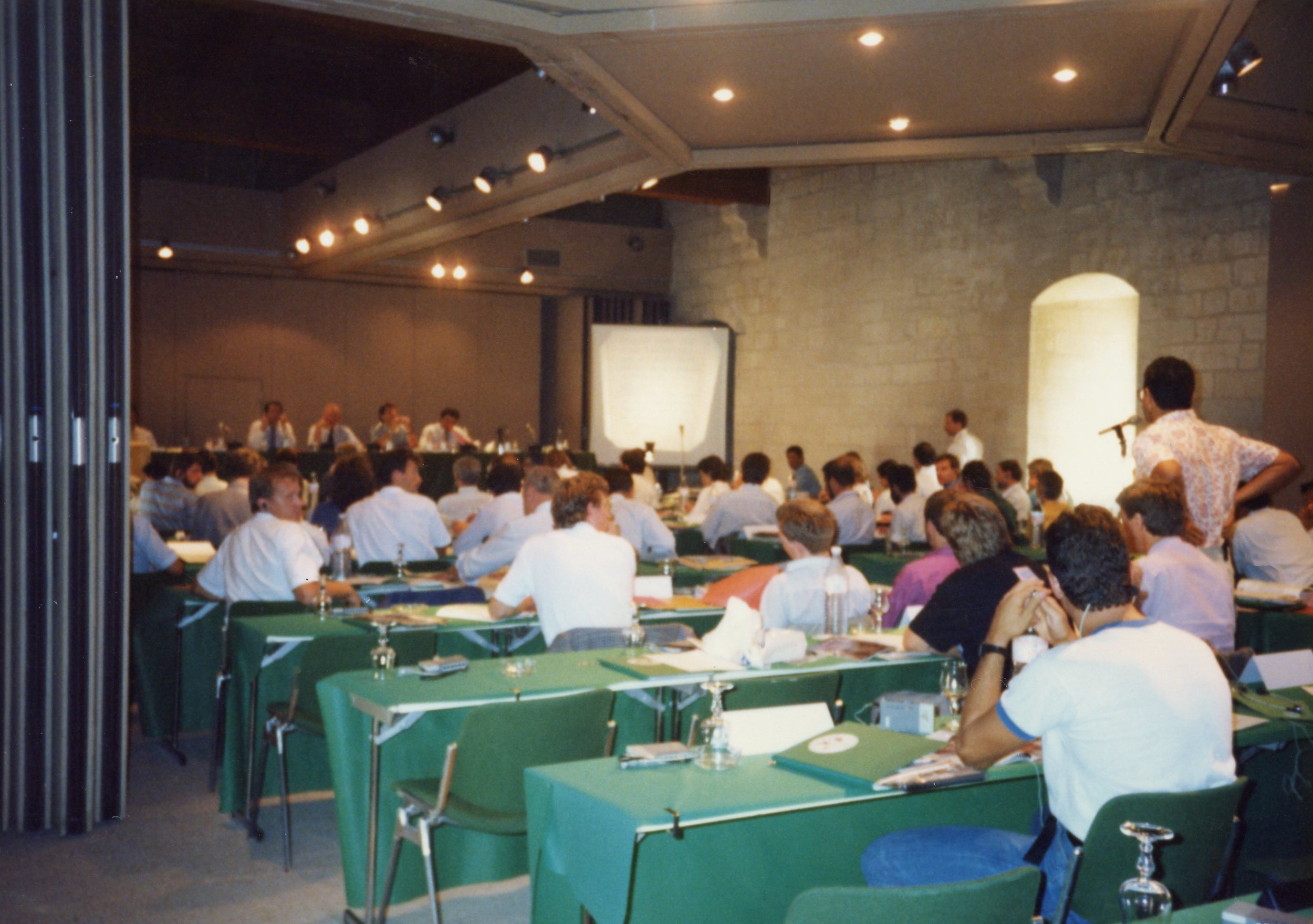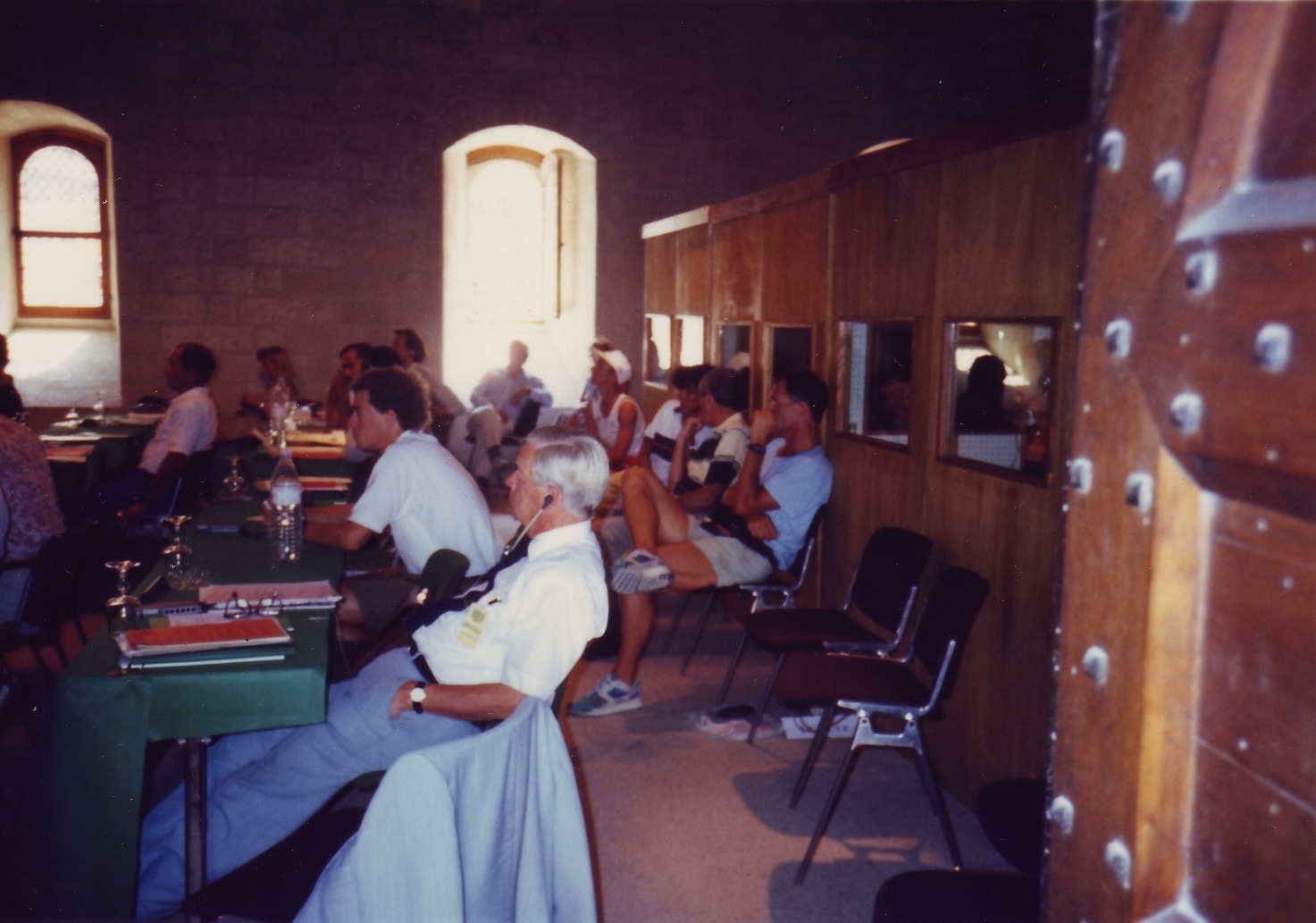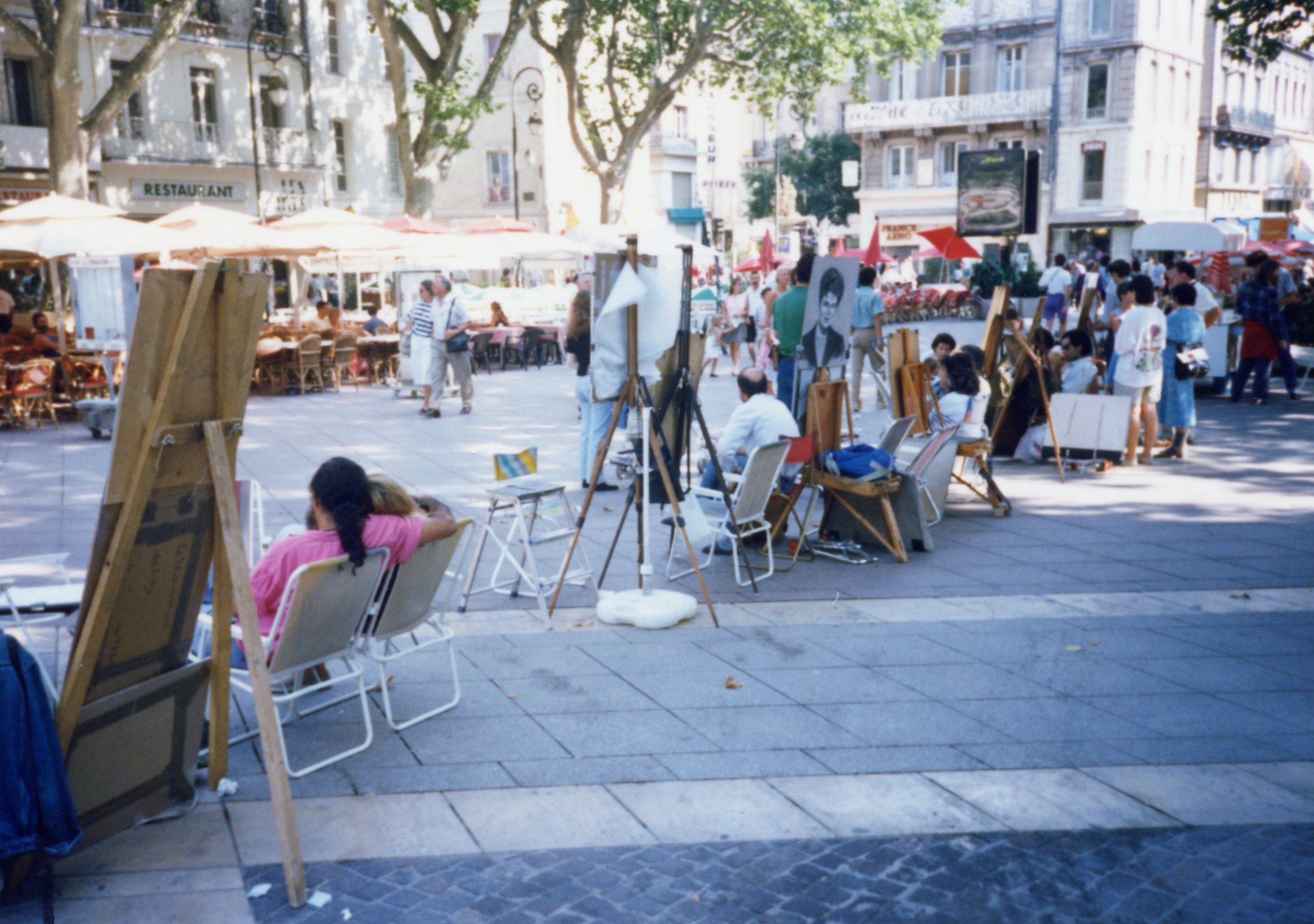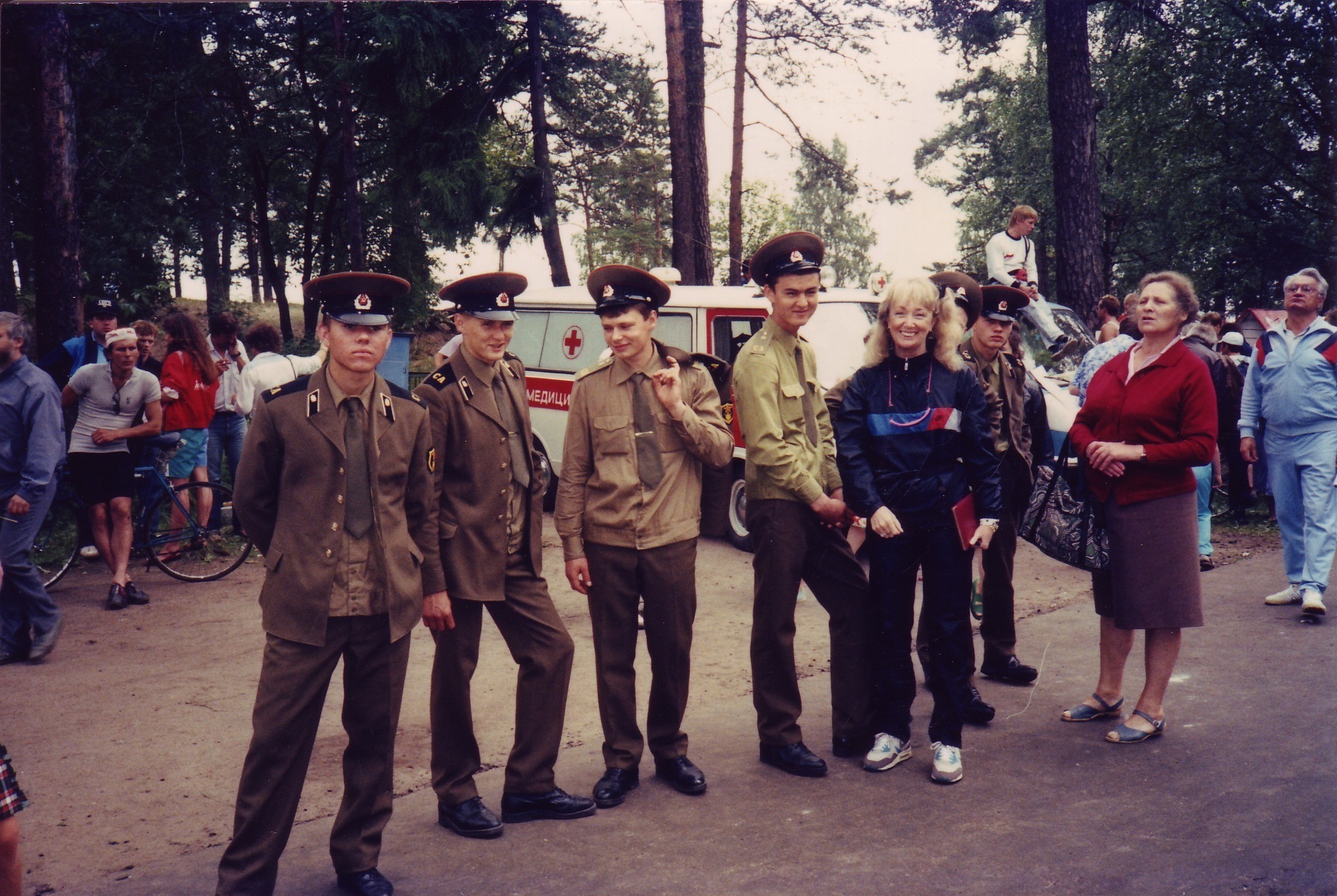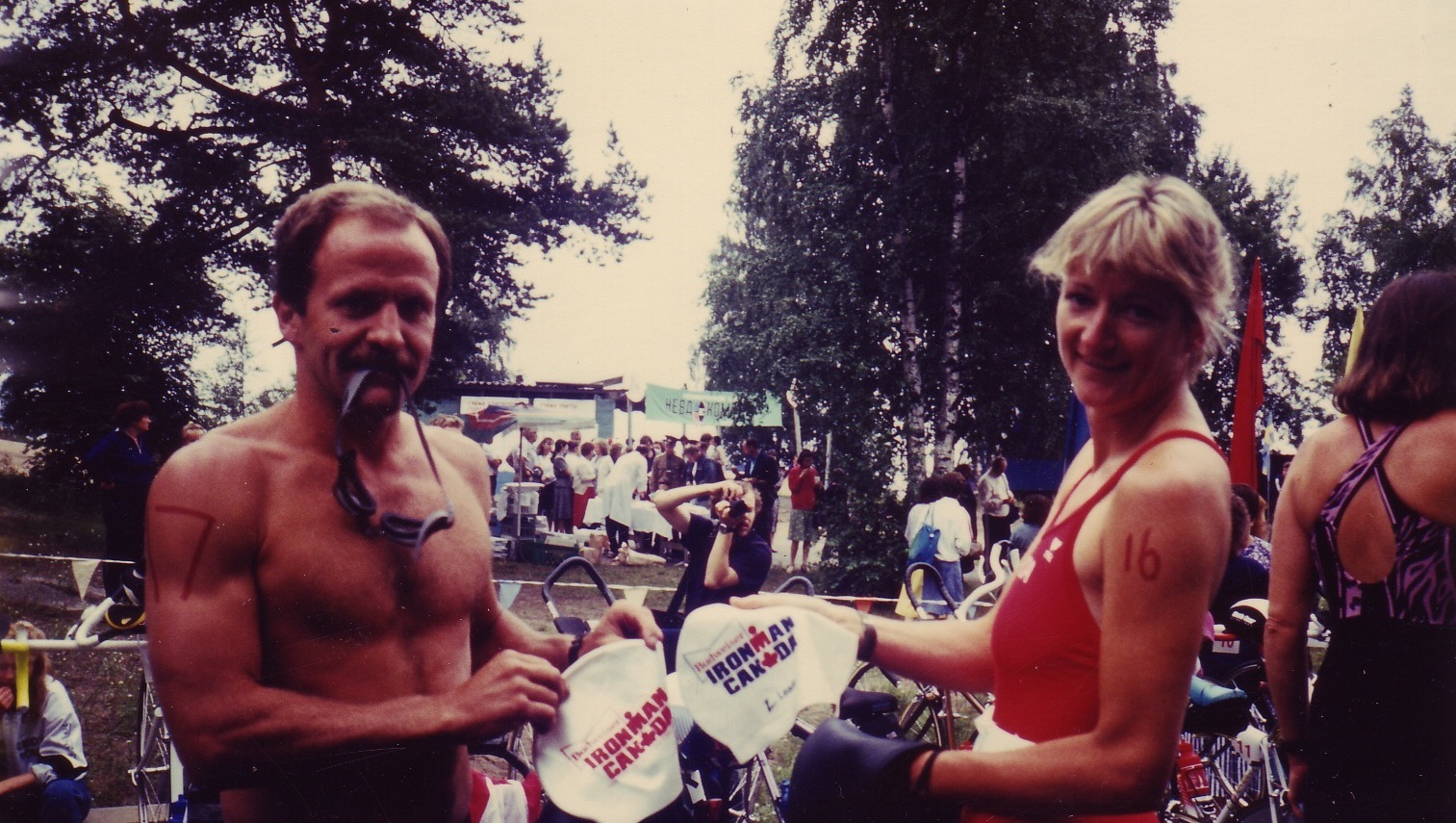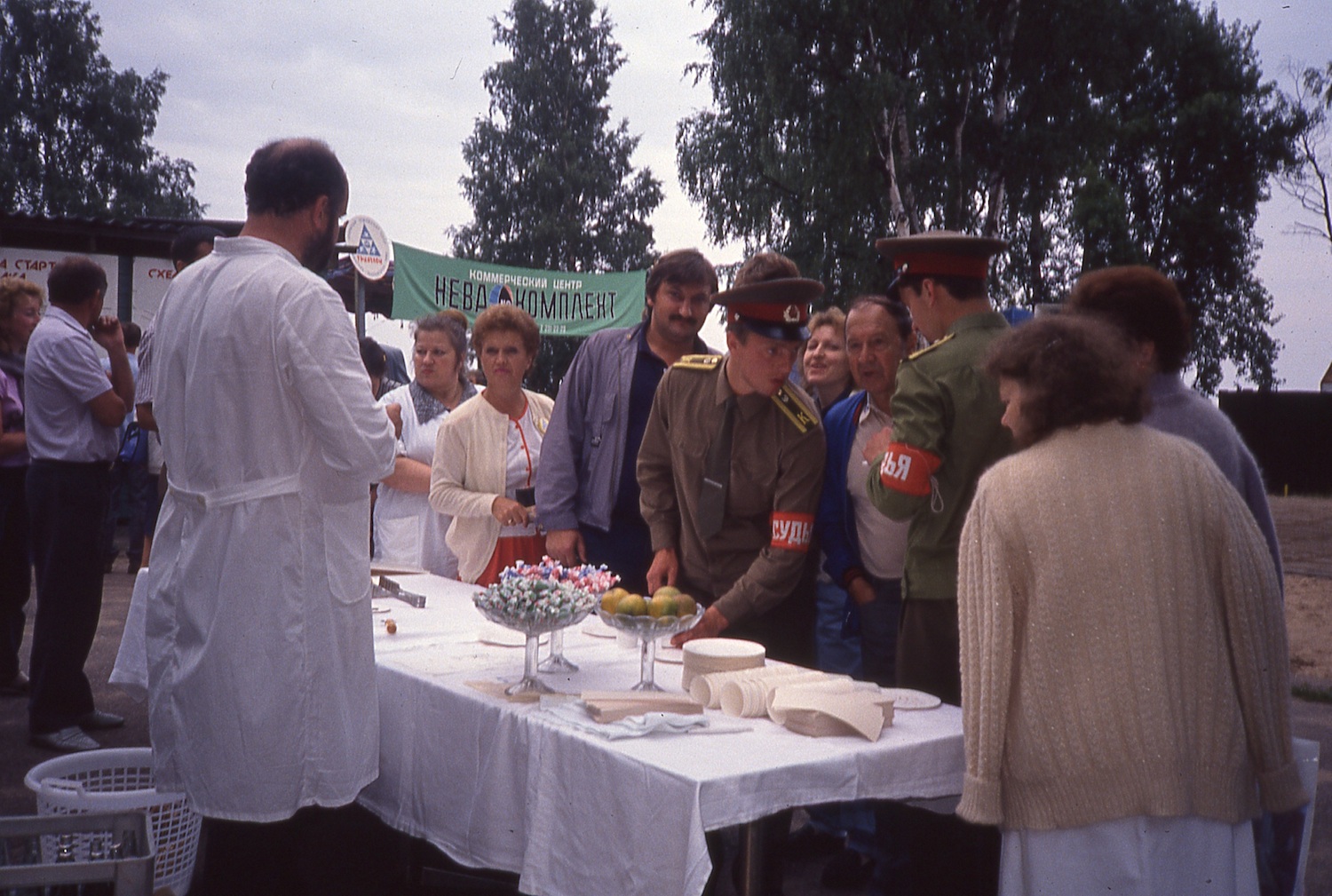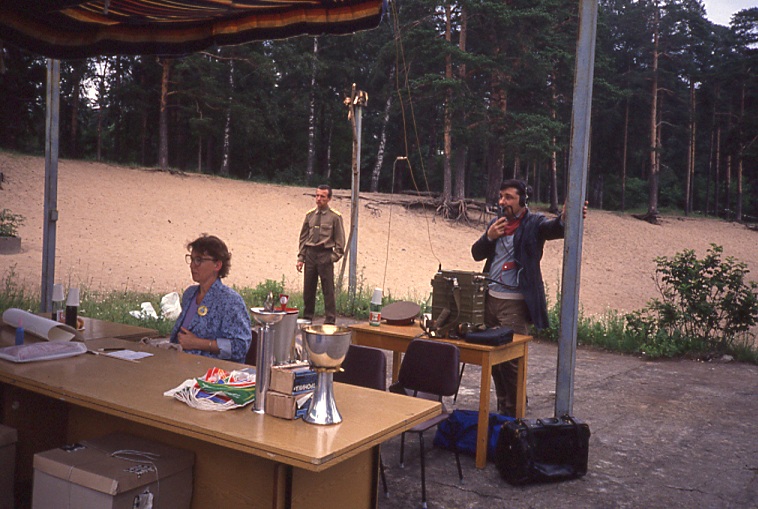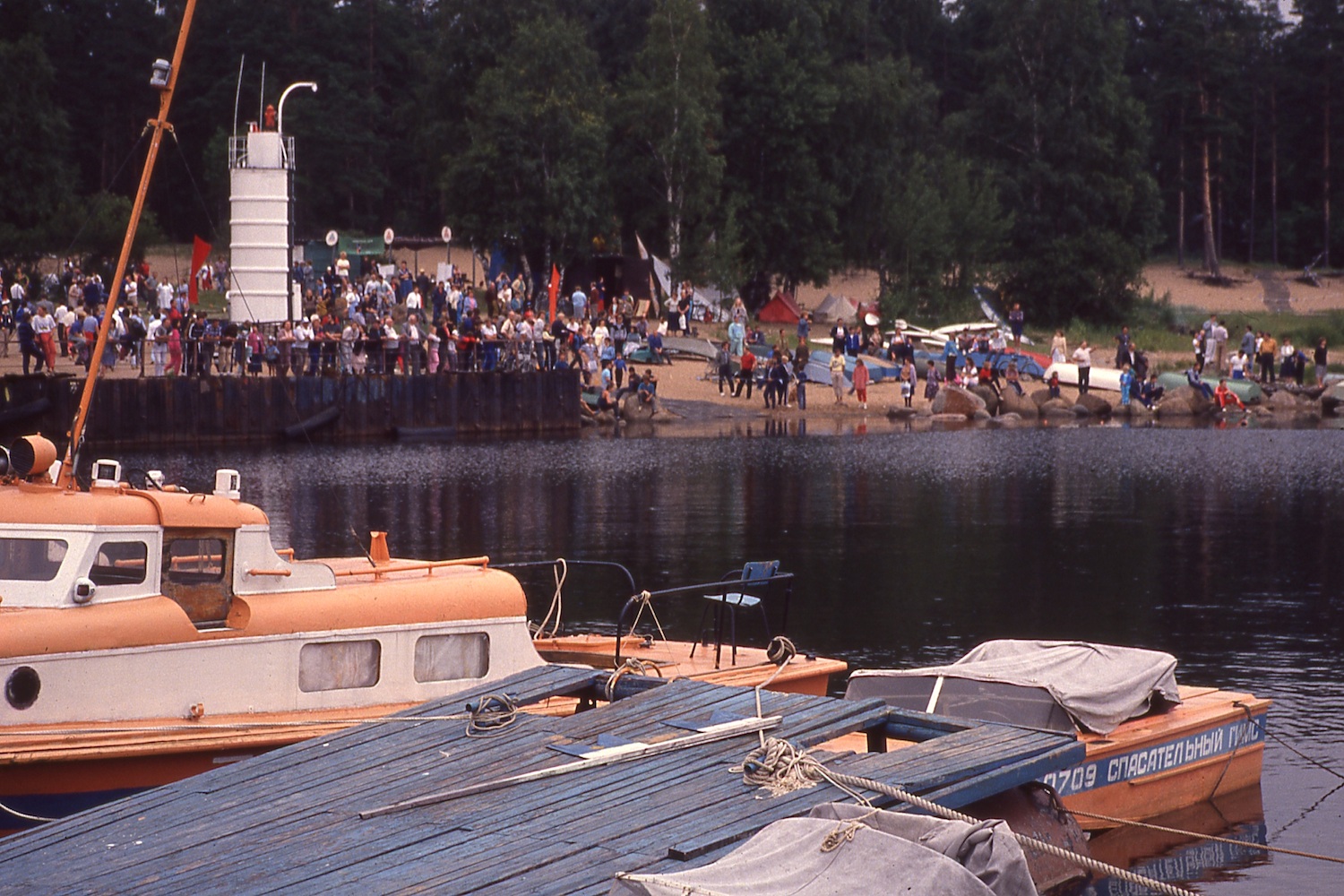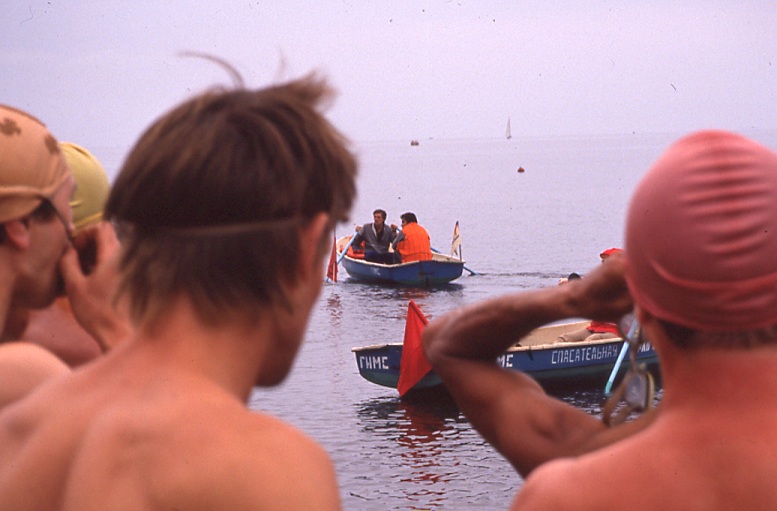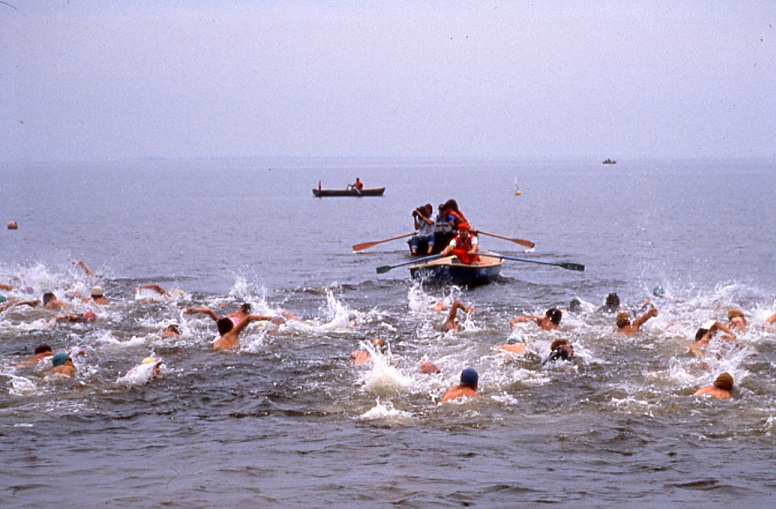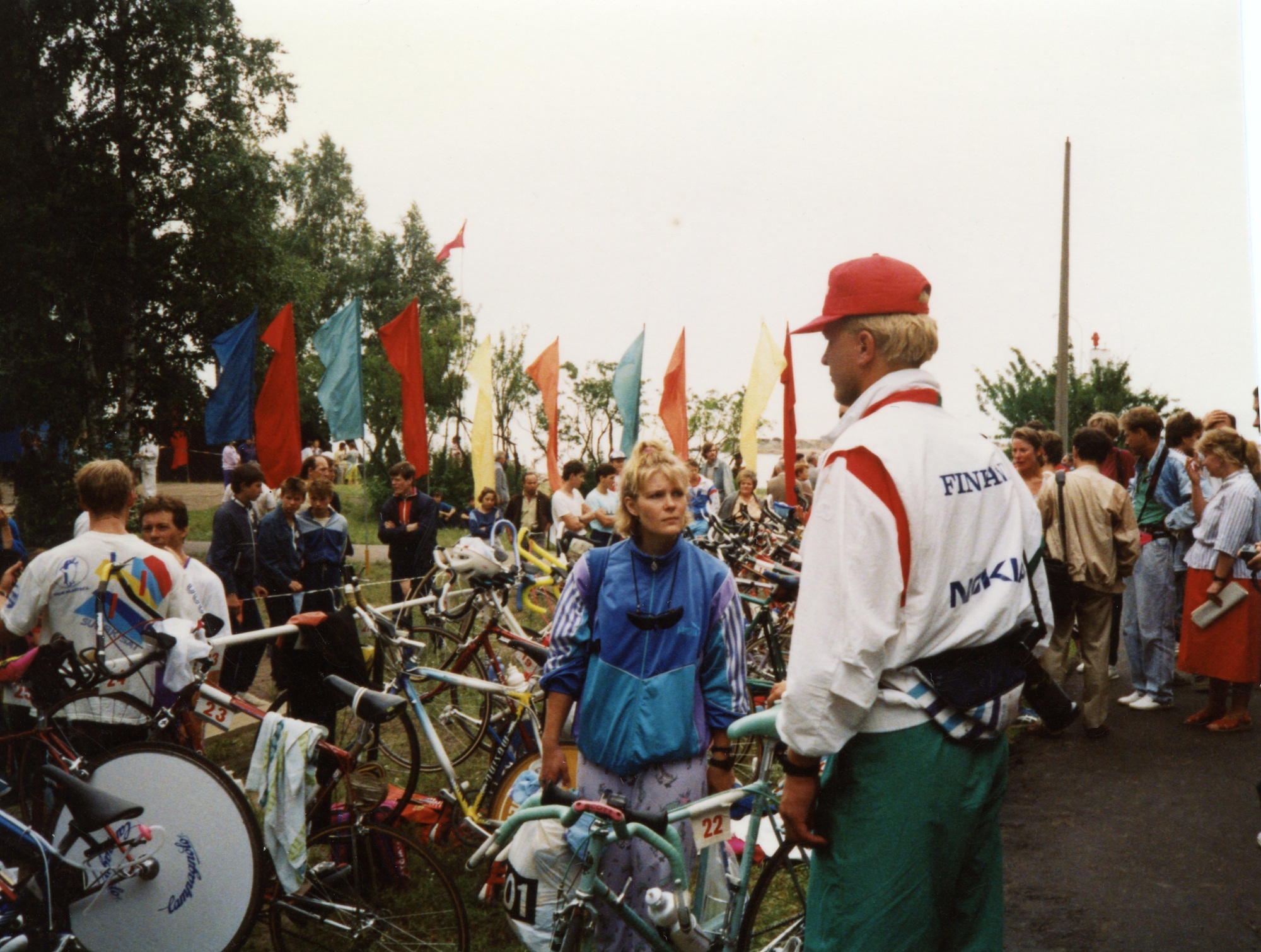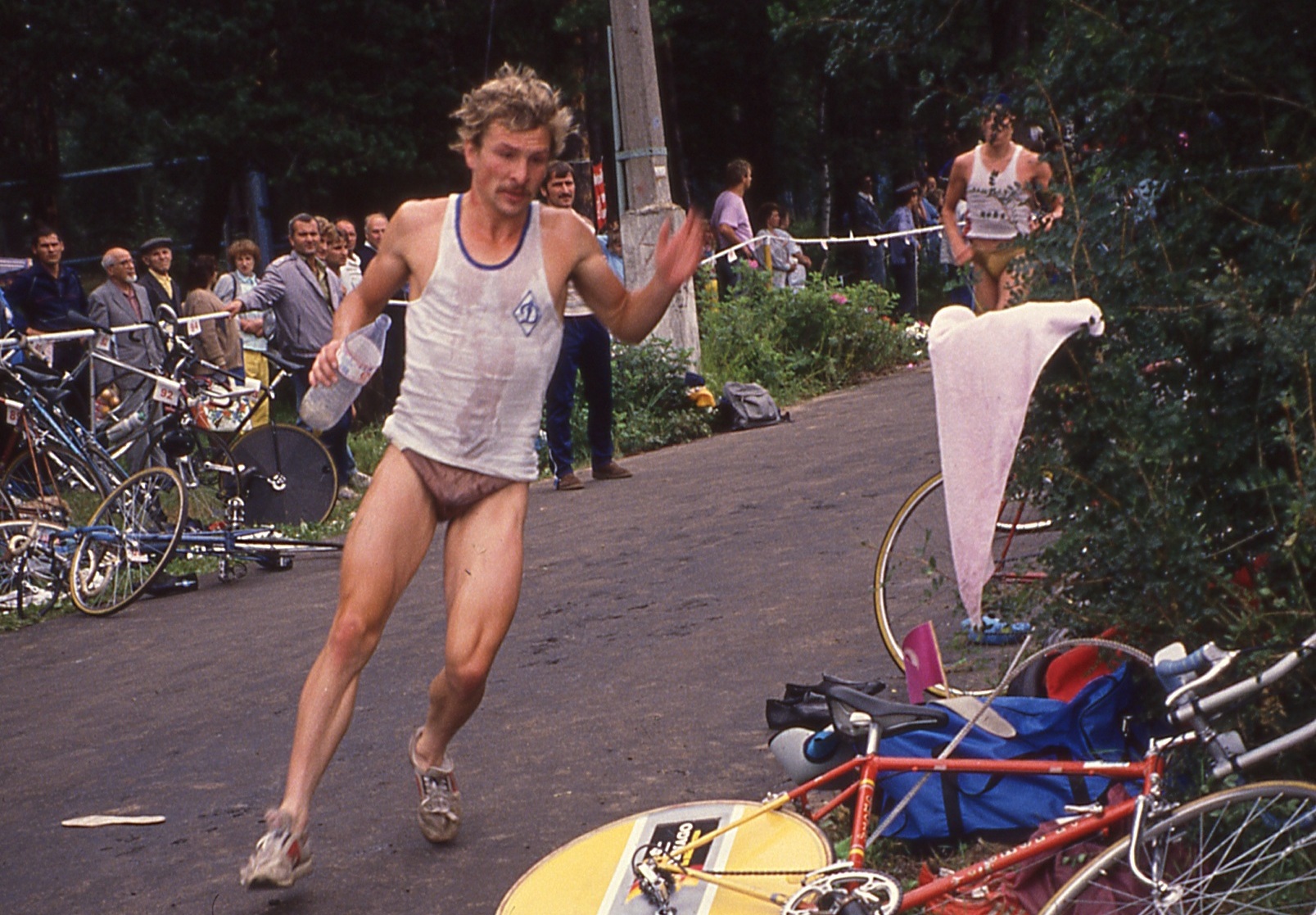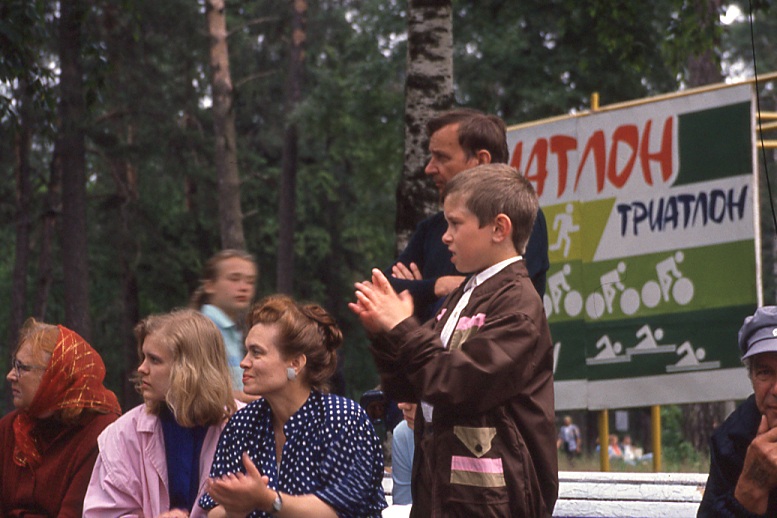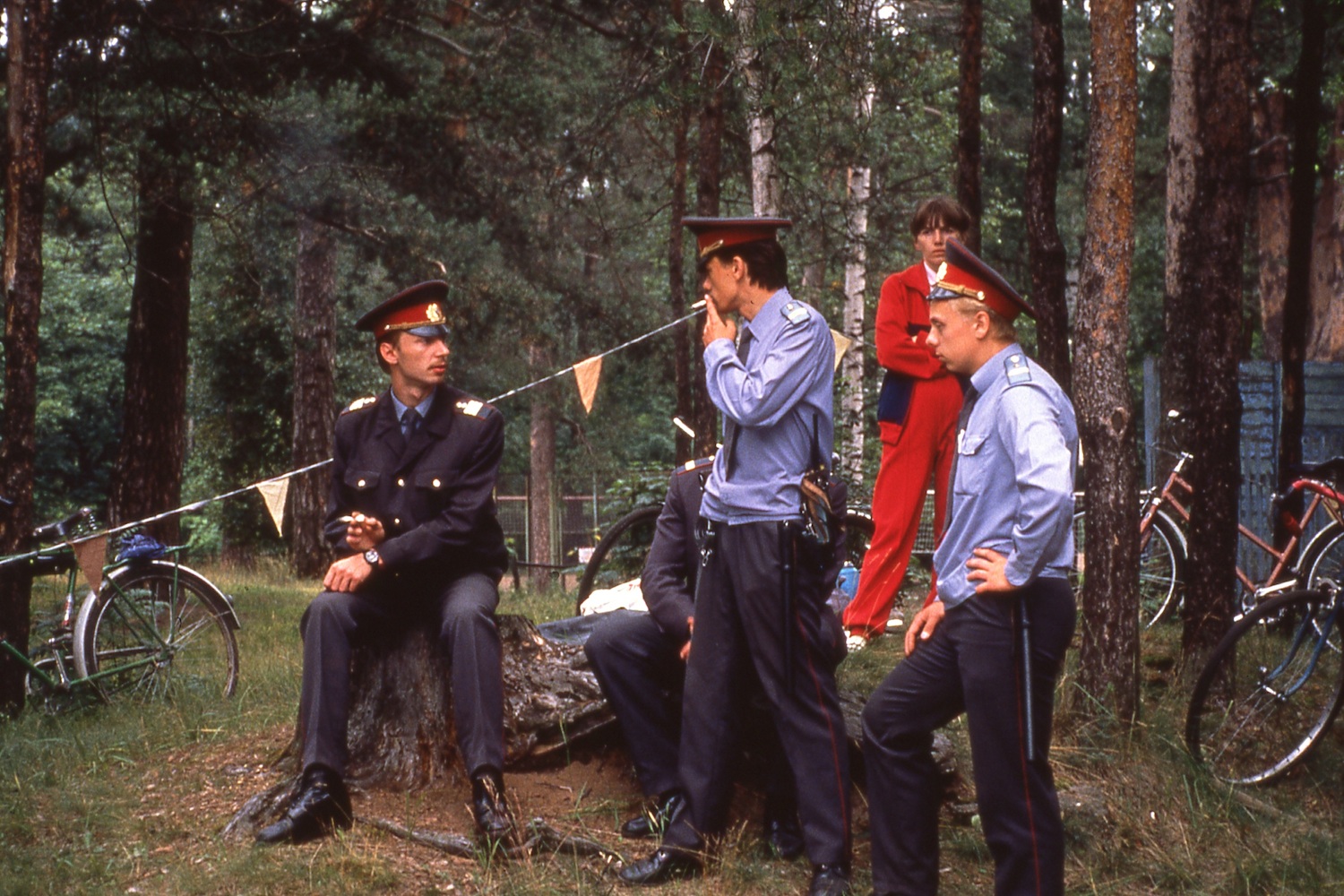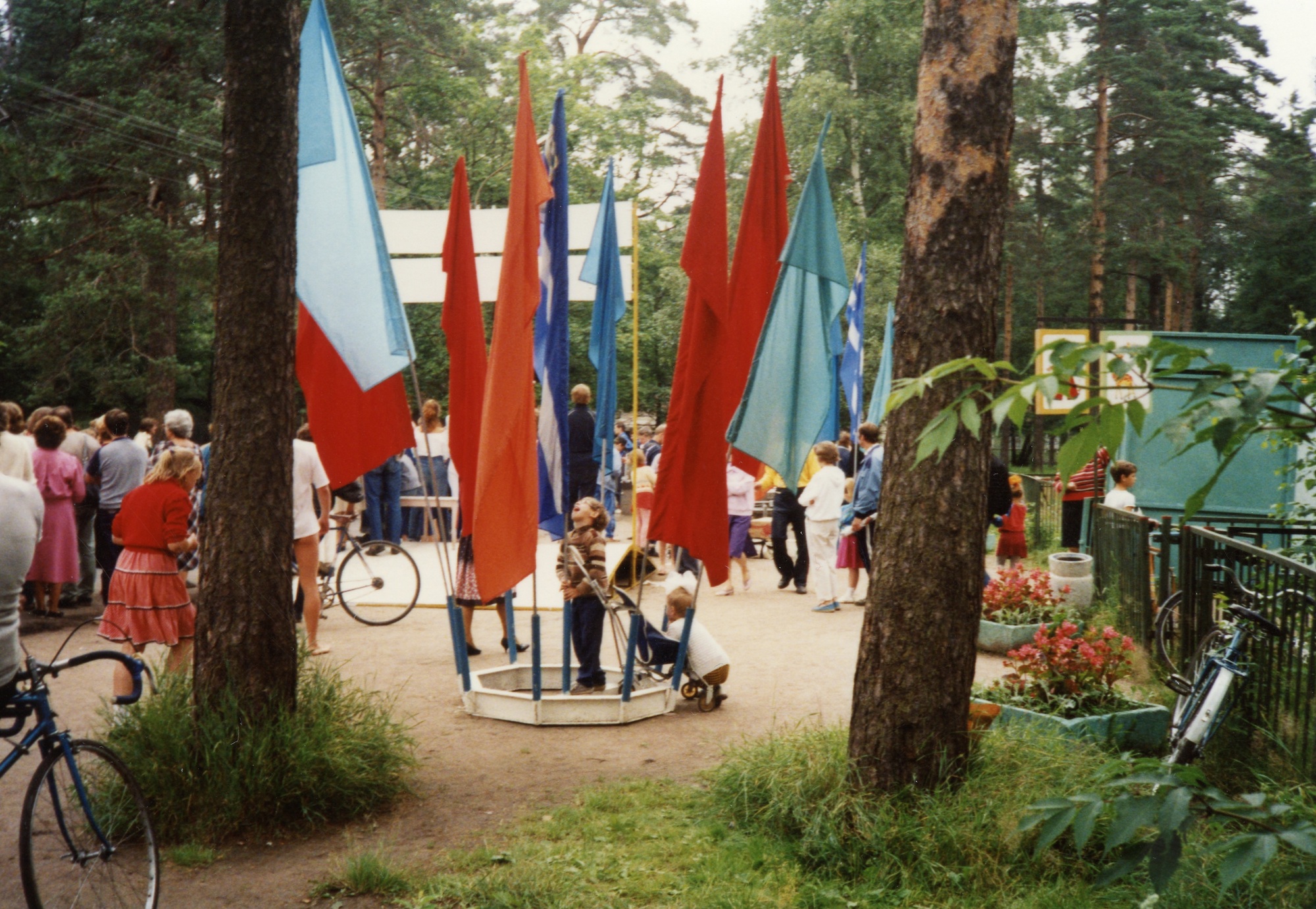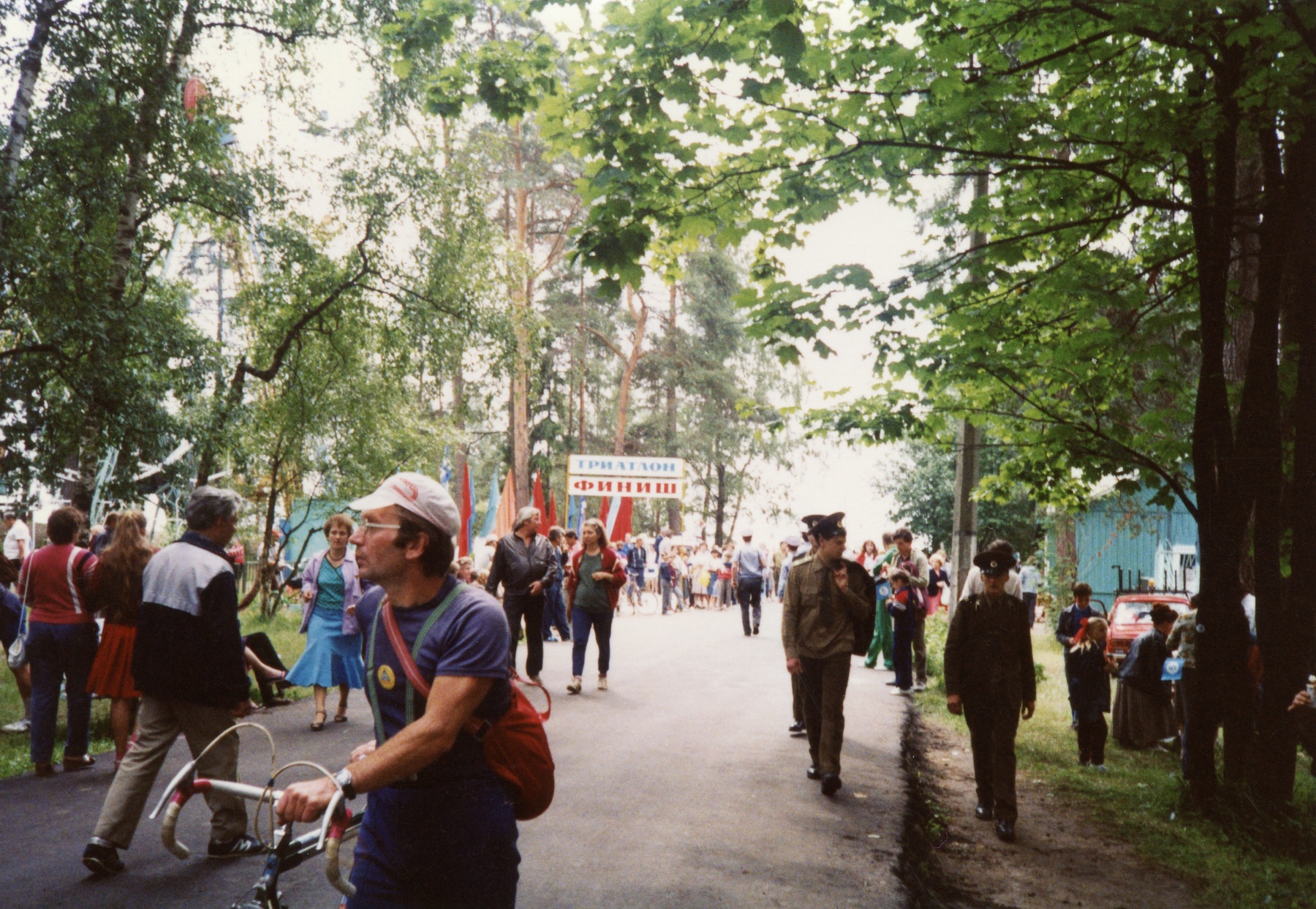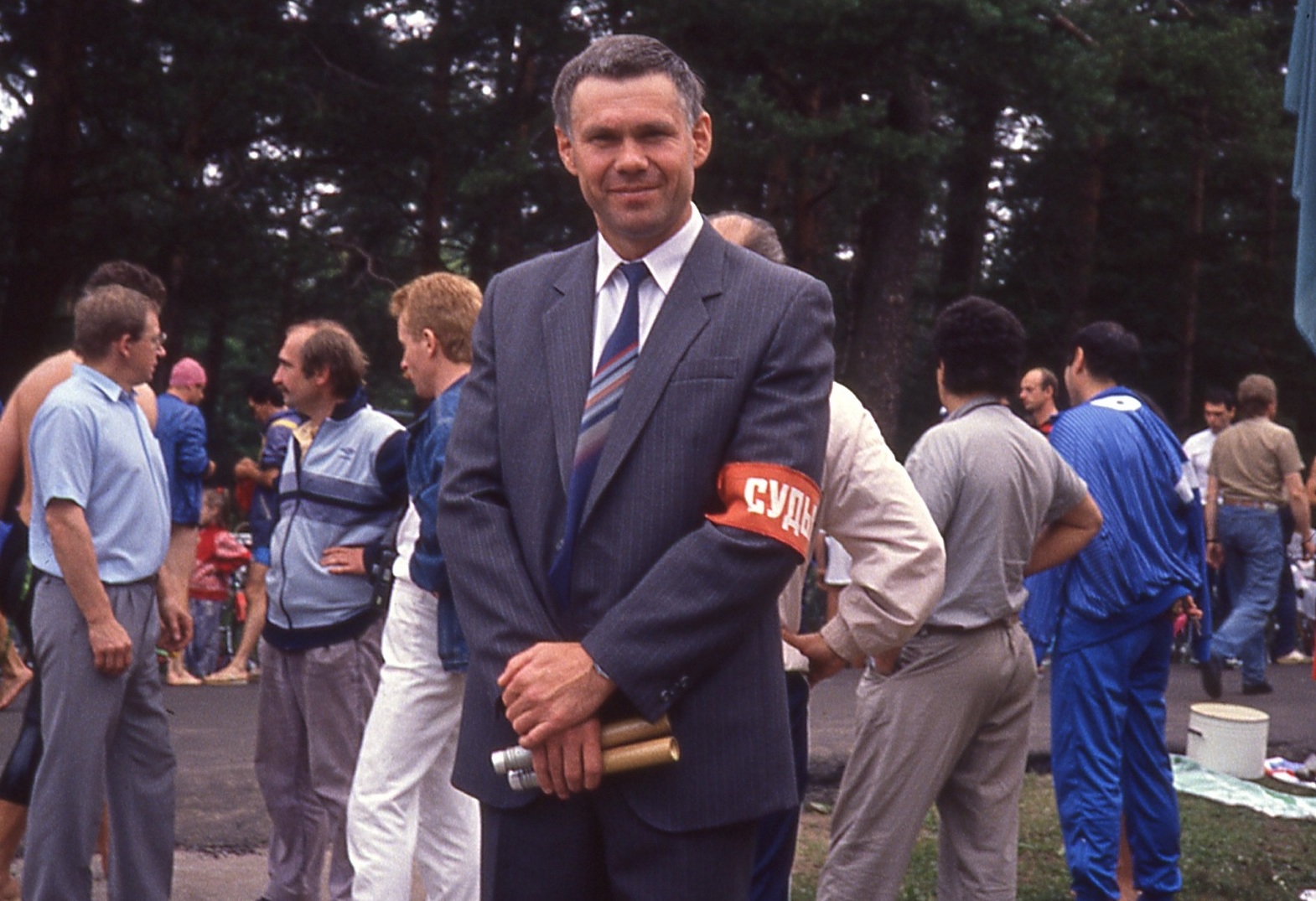TRIATHLON GOES INTERNATIONAL, 1987-90. In the late 1980s and into 1990, I took part in a series of international conferences, meetings and events aimed at growing the sport of triathlon worldwide. In this episode I describe the first attempts to form an international triathlon federation, early meetings with the International Olympic Committee, and a profoundly moving visit I made to an early triathlon in the dying days of Gorbachev's Soviet Union.
Amsterdam, 1987
In the fall of 1987 triathlons of every distance were popping up in big towns and small around a world beginning to see Ironmen and -women as hyper-human. Shorter course triathlons were the portal. You just knew that triathlon was about to explode. It was time for the key international players to identify themselves and make a plan.
The first attempt at an international triathlon governing body took place in Amsterdam in November 1987. The nascent organization was named the International Triathlon Federation. I attended the meetings on behalf of Ironman Canada. Les MacDonald was the other Canadian delegate. Valerie Silk and Earl Yamaguchi represented the Hawaiian Ironman. There were representatives of Ironman New Zealand as well. Other delegates came from all over the world. We all stayed together at Amsterdam's Golden Tulip Hotel. We had beautiful accommodations, meetings all day, and sightseeing at night.
The evening before the final election of officers to the new organization, we travelled by boat on the canal past the classic saltbox houses of Amsterdam and through the infamous red light district, finally arriving at a brilliantly lit, glass and copper museum. Over dinner there we were treated to welcomes and speeches from assorted officials interested in making triathlon big in Europe.
The next day, a rather reserved Belgian was elected the founding president of the new organization. That evening, most European delegates hit the road and headed for home. Les MacDonald, Phi Briars, Marisol Casado (Spain's delegate--one of the few female delegates and the current president of the International Triathlon Union) and I were left to wander the streets of Amsterdam one more time. What I remember most is being entertained for hours by Les MacDonald, who was constantly shadowboxing past open markets, flower stalls, and cafe windows. Here is my contribution to the Les MacDonald quotebook, which must exist somewhere. Dancing and punching his way down a cobblestone street, he screamed, "I hate being someplace where nobody knows me!"
A group photo I took at the end of the conference. Far right is Earl Yamaguchi (Hawaiian Ironman). Third from right (in blue) is Les MacDonald of Canada.
Avignon, 1989 and the Olympics
The International Triathlon Federation was soon supplanted by the International Triathlon Union, which continues to serve as triathlon's world governing body to this day. The first ITU president was Canada's Les MacDonald, who immediately took the lead in triathlon’s drive toward becoming an Olympic sport.
The inaugural meeting of the ITU took place in Avignon, France in spring 1989. Though I was not a delegate, I attended the meetings as an observer on behalf of Ironman Canada. The meetings took place in Avignon's historic Palais des Papes. Glass booths had been set up in the palace's meeting rooms to accommodate translators, as the proceedings took place in several languages. The discussions were focussed on making triathlon an Olympic event. Meanwhile outside, triathletes in their countries' colours were entertained à la Provence by street performers.
After much discussion and debate, an Olympic distance for triathlon was set: a 1.5 km swim, 40 km bike and 10 km run. Thrillingly, the Olympic flag was hoisted to the top of the Palace. Shortly thereafter, ITU president Les MacDonald hobbled over to me on crutches, one foot bandaged and held off the ground. He had stepped on a nail two days before leaving Canada, but that did not stop him from travelling to Avignon. In a very serious, almost grave way, he motioned to the Olympic rings and asked me, “Do you know what this means?”
It was very exciting, but in these international meetings Ironman tended to stand alone. Ironman was Valerie Silk, and Valerie just was not that interested in the ITU or even the International Olympic Committee. However, as a goodwill gesture to both organizations, Valerie did agree to drop the phrase "World Championship" from the name of the Hawaiian Ironman.
At the finish line of a demonstration triathlon held in Avignon in conjunction with the ITU meeting, two fellows from the USSR Triathlon Association introduced themselves to me and asked if I would come to Leningrad to see their event and act as consultant. “We want the Zelenogorsk Triathlon to have the passion of Canada’s”, they said. Wow, what a compliment and what an adventure I had to look forward to.
Zelenogorsk, USSR, 1990
Preparing for the race at Zelenogorsk. Of all the race photos I took over the years, this is my favourite.
A dedicated crew member sweeps the swimmers' path into the swim, Zelenogorsk, 1990.
The most impactful three days of my life were spent in Leningrad just after perestroika. The invitation I received in Avignon from the Soviet Triathlon Federation was soon finalized and I received my visa from the Soviet Embassy in Washington, DC. The accompanying documents described my reason for travel as a member of the Idaho State Wrestling Team. I still have no idea why.
I flew to Leningrad on Finn Air, Finland’s beautiful national airline, and that was about the last beautiful thing I would see for quite a while. It took forever to exchange my money for Soviet rubles. The transactions always took place on the street; there was no international money exchange in the Leningrad airport or anywhere else, as far as I knew. It took forever to find a cab, and forever for my cabbie to find Leningrad, never mind my hotel, the Hotel Sputnik.
At one time this hotel must have been grand, but now it was embarrassingly sad, dirty, and dark. The employees carried on, seeming not to notice the occasional rebar poking up through pinkish carpet that must have once been red. By now I shouldn’t have been surprised that no one on the desk had ever heard of triathlon. There was no message left for me regarding time, place or transportation, so I had no idea how to get to the triathlon I had flown halfway around the world to see. Of course the elevator was broken, so I had to drag my luggage up four floors. I asked one of the bellmen, who seemed to be napping in one of the lobby chairs, if he would give me a hand. He growled and barely woke up explaining, "They pretend to pay us so we pretend to work". It was just sad.
A Russian orthodox priest blesses the athletes with the translator by his side. The woman in green in the back is the mayor.
But otherwise the people in the hotel were great. They were determined to find me a triathlon. The morning before the race, thanks to a very nice lady employed by the hotel, members of the Soviet Triathlon Association found me and whisked me away to Zelenogorsk on the Gulf of Finland.
As I write this episode, once again I feel a very deep respect and affection for the people I met in Zelenogorsk. Look at the photographs and slideshows here and I bet you'll understand. I thought we had it tough starting a triathlon out of nothing in Penticton, BC in 1983. I had no idea.
Soviet spectators look on skeptically as a triathlete changes in a pretty rough transition area.
During my three days and three nights in Leningrad the sun never set except for a brief and eerie solar eclipse. It felt very strange. I had become emotionally attached to the people of Zelenogorsk, their big hearts, and the fun they were having crewing and caring for the athletes. I had one of those "gestalt" moments when I suddenly realized how much alike we all are when we’re having fun.

